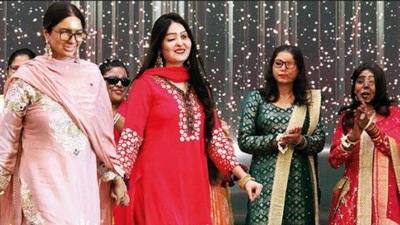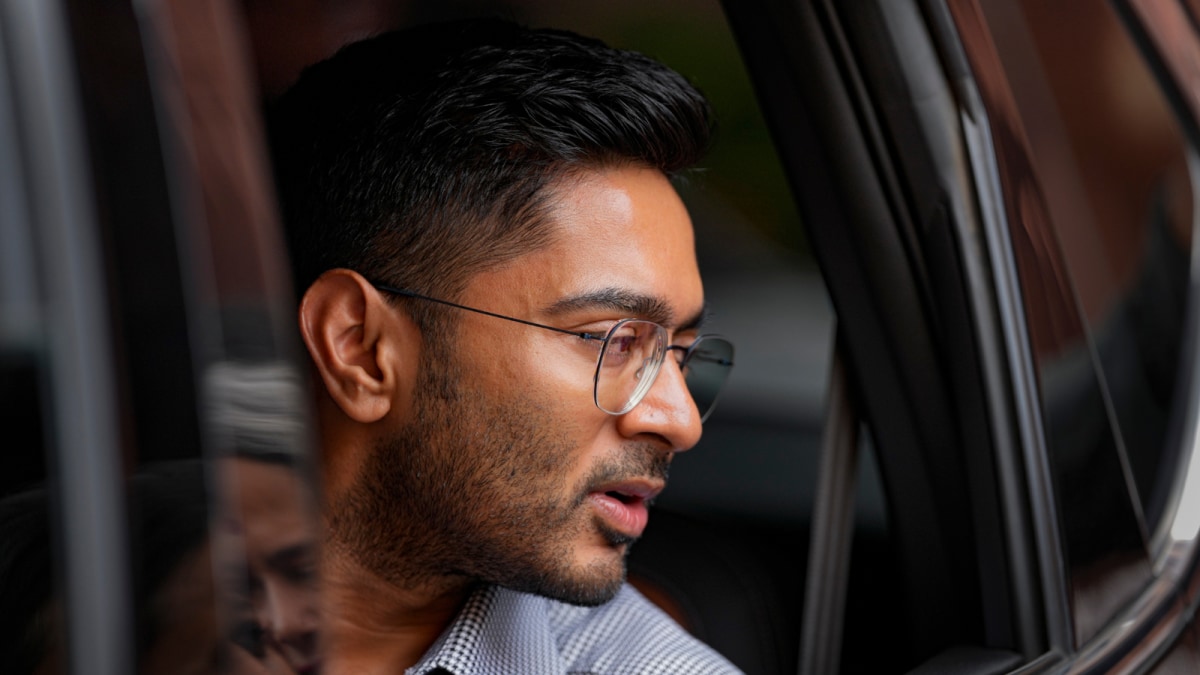ARTICLE AD BOX

Shaheen’s (left) foundation organised ‘From Scars to Strength’ on Sunday
NEW DELHI: Weekends at Chhatarpur are usually all about wedding shopping and the accompanying glitter. On Sunday though, in a quiet hall away from the chaos and the crowd, the air felt gentler.
Women in soft lehengas and pastel anarkalis sat together, dressed not for a wedding, but for themselves. From afar, it looked like any friendly gathering or a rehearsal for a fashion show. Then the scars came into view. The laughter didn't stop. The shoulders didn't drop. Among them stood Reshma Ansari and Suniti Karmakar, smiling as they posed for a photo. "We stopped going to weddings," said Reshma, who survived an acid attack in 1997.
"People stare before they even say hello." Suniti, attacked in 2010, nodded. "You start feeling like the room isn't yours." A few steps away stood Haseena, still wearing a mask. She was attacked a year and a half ago and had come to Delhi for surgery. Acid test: Free surgery should be a right, not a fight Her 13-year-old daughter, also a survivor, played nearby. Reshma walked up to her and reassured her: "You don't have to hide here." Haseena's eyes filled as she slowly lifted her mask.
For the first time in months, she wasn't hiding. That quiet courage was what From Scars to Strength, a symposium by Brave Souls Foundation led by Shaheen Malik, was all about - a day for acid attack survivors to meet, celebrate and remind the world that scars aren't shame; they are stories of survival. Some had lost an eye, some an ear, others bore quiet scars on their hands - but every story in that room had a heartbeat. For instance, Meena, who was attacked in 2023 and is recovering from 14 surgeries, let her song speak for her.
"Zindagi ke safar mein guzar jaate hain jo makam..." Her voice trembled at first, then steadied, each lyric carrying what words could not - the pain, the nostalgia, the stubborn hope. When she reached the words "woh pal bhi kya pal the...", the hall fell silent, a shared quiet among those who understood loss too well. Male survivors, too often invisible, sat among them. Shahnawaz, attacked in 1997, had travelled from Meerut.
"The pain is the same for men - the shame, the struggle, the silence," he said. Neeraj, attacked in 2010, nodded, saying, "Even finding a job becomes a fight. People look away." Their stories were quieter, but no less powerful - reminders that acid doesn't discriminate, but empathy often does. And then, there was a story that didn't need words - of Reshma Khatun and Ashok. Their presence alone said it all: love has no bias, no boundaries, and no fear of scars.
In 2014, acid changed Reshma's life. It took away her vision; today, she can see only faint shadows with one eye. But it couldn't take away her will. Years later, a Facebook message from Ashok changed everything again. What began as shy hellos turned into long chats, shared laughter, and quiet understanding. When they finally met on a video call, he didn't flinch. He just smiled and promised to stay. "He saw me, not my face," Reshma said softly. In 2019, they married, an interfaith union that now includes their little son. Wherever she goes, whether for events or small errands, Ashok is always beside her, his hand steady on hers, guiding her steps. "It was never about looks," he said simply. "It's the heart that matters." Between songs, hugs, and stories, the event also turned the spotlight on what still needs fixing. Actor Sharmila Tagore, the chief guest, spoke softly but firmly: "When I met Shaheen, she was still behind her pardah.
Even now, her pain lingers. Quick redressal is essential - and the sale of acid must stop completely." A panel, which included Justice Dharmesh Sharma (Retd), AAP's Rajya Sabha member Sanjay Singh and retired public prosecutor Neelam Narang, discussed key issues facing survivors - from faster compensation and free surgeries to greater accountability. "Free surgery in every hospital should be a right, not a fight," said Singh, vowing to raise the matter in Parliament. Under the Delhi Victim Compensation Scheme, payouts have swung wildly - from Rs 7.6 lakh for six victims in 2014 to Rs 79.5 lakh for 27 survivors in 2024. Till July 2025, Rs 40 lakh was disbursed among 14 survivors. For most, that doesn't even cover the first few surgeries. Shaheen, who leads Brave Souls Foundation, said, "The average recovery cost easily crosses Rs 20 lakh," she said. "And survivors still get money in instalments - after pleading for every rupee." Real rehabilitation, she added, is not about one cheque. It's about long-term medical care, therapy, free medicines, disability certificates without red tape, and mental health support. "These aren't luxuries," she said firmly. "They are basic rights - for people whose lives were burned but not broken." As the hall began to empty, the survivors gathered again - arms around each other, smiles lighting up scarred faces. In that glow, there was no trace of pity, only power. They weren't hiding their scars anymore. They were owning them - like badges of survival, like light.

 1 hour ago
6
1 hour ago
6









 English (US) ·
English (US) ·